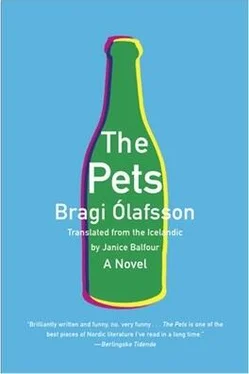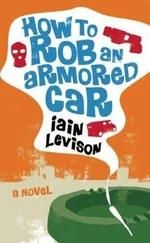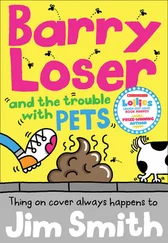Bragi Ólafsson - Pets
Здесь есть возможность читать онлайн «Bragi Ólafsson - Pets» весь текст электронной книги совершенно бесплатно (целиком полную версию без сокращений). В некоторых случаях можно слушать аудио, скачать через торрент в формате fb2 и присутствует краткое содержание. Год выпуска: 2008, Издательство: Open Letter, Жанр: Современная проза, на английском языке. Описание произведения, (предисловие) а так же отзывы посетителей доступны на портале библиотеки ЛибКат.
- Название:Pets
- Автор:
- Издательство:Open Letter
- Жанр:
- Год:2008
- ISBN:нет данных
- Рейтинг книги:5 / 5. Голосов: 1
-
Избранное:Добавить в избранное
- Отзывы:
-
Ваша оценка:
- 100
- 1
- 2
- 3
- 4
- 5
Pets: краткое содержание, описание и аннотация
Предлагаем к чтению аннотацию, описание, краткое содержание или предисловие (зависит от того, что написал сам автор книги «Pets»). Если вы не нашли необходимую информацию о книге — напишите в комментариях, мы постараемся отыскать её.
Pets — читать онлайн бесплатно полную книгу (весь текст) целиком
Ниже представлен текст книги, разбитый по страницам. Система сохранения места последней прочитанной страницы, позволяет с удобством читать онлайн бесплатно книгу «Pets», без необходимости каждый раз заново искать на чём Вы остановились. Поставьте закладку, и сможете в любой момент перейти на страницу, на которой закончили чтение.
Интервал:
Закладка:
If I was beginning to feel the effect of the whisky (which I had smuggled into the living room with me), I think it vanished as soon as I entered the kitchen and saw what had happened. Havard was frozen in the middle of the room and holding a bloody meat knife; on the counter beside the sink lay the lifeless body of the iguana. Although I noticed straightaway that it was considerably shorter than before, I didn’t fully understand what had happened until I got nearer and saw its head in the sink. I’m sure that I’ll never forget the expression in Havard’s eyes when he put down the chopping knife and looked up from the blood-bath: it was like he needed me to protect him from all the evil powers that were threatening him.
I hadn’t intended to give him any of my whisky, but when I saw the state that he was in, I told him straightaway to take a swig. After this latest incident in our peculiar household in Stoke Newington, I even had to have a good few mouthfuls and a cigarette to calm down.
I was actually too numb to be angry. Before we cleaned up the mess in the kitchen we sat down in the living room and I tried my best to stay calm, in the hope that Havard would explain why this had happened; really there was no point in getting excited.
He had gone upstairs to bed — I was right there — but he said he couldn’t fall asleep because I was playing music so loudly in the living room. He had become restless and thought he would take a look at Ahab in Orn’s study. Then he had begun to feel bad in the dark and because — as I knew — he always felt better on the ground floor after dark, he took the lizard down into the kitchen. He needed company (strange though it may sounds in this context), and as the cat only made him feel worse in the dark and I was listening to this weird music of mine, Ahab was the only one he could talk to.
There was nothing to drink in the fridge, so he had had to make do with water. He had put Ahab down on the counter to the right of the sink and while he was waiting for the water to run cold he petted the lizard as he usually did. But on this occasion Ahab didn’t like being petted and suddenly—“it was just as if I had been struck by lightning”—bit him. His reaction (that is his neurosis which, of course, had not been improved at all by the amount of alcohol flowing in his blood) was to grab hold of the big chopping knife that hung over the sink. Before he realized what he was doing, he had delivered the fatal blow.
When I recall the incident now, I don’t think I realized the gravity of the matter until the following day. Before Havard fell asleep that evening, I tried to make him understand that he could no longer stay in the house; the magnitude of his blunders far outweighed our small responsibilities and so on. I remember that while I tried to get him to understand our situation — or more precisely my situation — I felt it was utterly unrealistic. It was almost as if we were on a ship without a captain. Ahab, the captain, was dead, and since the crew could not agree which direction it should take, then half of it — that is the half that had killed off the captain — would have to disembark at the first opportunity. Although Havard was upset, I am not sure he realized the full implications of his deeds. I suspect that he fell asleep without worrying too much, not to mention the fact that the alcohol which he had consumed over the course of the day would have been sufficient to knock out a much bigger creature than him. But when I finally fell asleep in the early hours of the morning, I had made up my mind to kick him out of the house the following day.
He had been up for two or three hours when I awoke at around lunchtime. And it was obvious that he had searched the house high and low for alcohol. He had found the cans of beer, which I had hidden in a bucket in the vacuum cupboard and covered with a smelly floor cloth, and was finishing the third one when I came across him in the kitchen. The cat was there too, hunched over its dish and tearing at the tinned food as earnestly as Havard gulped down the beer. I thought I had prepared him the night before for what I was about to tell him, but he reacted badly, said he was offended, it had been a pitiful accident and the other accident with the rabbit and the guinea pig had come about because he was trying to help them. I said I couldn’t be bothered arguing with him, and when I gave him four hundred pounds and told him to leave, his behavior changed instantly. And yet he tried to see how far he could push me. He was obviously already enjoying the money in his imagination when he asked for twice the sum and promised not to show his face again; he smiled as if he had the upper-hand in some very important business transaction.
I hadn’t looked at the matter from this perspective before, but of course he had taken the model of the whaler Essex and the original edition of Moby-Dick as some kind of compensation when I refused to accept his offer. Exactly how he had managed to preserve these valuable objects for five years I couldn’t possibly understand. Perhaps his loss of the ukulele had taught him to take better care of things; he may have learned something since then, although the conversation that is currently going on in the living room doesn’t really give that impression.
13
“But, tell me, Armann, you have a degree in Icelandic, don’t you? What does the phrase ‘to hold a function in the house’ mean?” Havard farts and apologizes with a laugh.
“‘A function in the house ,’ you say?” Armann sounds as though he has to give this some thought.
“Take this for example: a person has a party in his house, say I have a party here at Emil’s place and invite some people, then one doesn’t talk about ‘having a function in the house ,’ am I right? That is something different, isn’t it?”
“Yes. .” I hear Armann drink, perhaps to jog his memory. Then he clears his throat and tries to explain:
“‘To have a function in the house ’ means to have a party, just a normal party, but I suspect that the phrase ‘function in the house ’ is more often used in connection with public functions or gatherings that are held by politicians for example, or. .”
“Oh, I was beginning to think that we were taking part in some gathering in the house ,” Havard interrupts. “That a party in the house was perhaps a party that a host held — in this case Emil — without being present; in other words whilst out of the house. ”
“You are such a comedian,” Armann says, laughing. At this point the phone rings and Havard answers.
“Hello, who’s that?” He is silent for a little while. “My name is Havard. Your name is Vigdis? Emil is unfortunately not at home. No, he hasn’t come back. Yes, he came home, but he just hasn’t. . come back again.”
Armann giggles.
“Well, it’s difficult to say. Perhaps he had to rush out and. . yes, it looks as though he will be late getting back, at least it seems that way.”
Armann giggles again at Havard’s comments.
“No, I am just an acquaintance of his,” Havard carries on and tells Vigdis his name. “No, I was just coming back from abroad, like Emil, and happened to be passing by. You are in Akureyri, aren’t you? No, I. . yes, Emil told me. He said you were in Akureyri. Yes. Really? What, shall I. . yes, I’ll tell him to phone you. As soon as he comes. OK? Yes, I’ll let him know. Auf wiedersehen.”
“That was Vigdis,” he informs Armann. “The other woman,” he adds in a rather insinuating manner.
Havard has just finished talking when the phone rings again. He is probably still holding the receiver, but he seems to wait a little before answering. He clears his throat and says in a husky, masculine voice:
Читать дальшеИнтервал:
Закладка:
Похожие книги на «Pets»
Представляем Вашему вниманию похожие книги на «Pets» списком для выбора. Мы отобрали схожую по названию и смыслу литературу в надежде предоставить читателям больше вариантов отыскать новые, интересные, ещё непрочитанные произведения.
Обсуждение, отзывы о книге «Pets» и просто собственные мнения читателей. Оставьте ваши комментарии, напишите, что Вы думаете о произведении, его смысле или главных героях. Укажите что конкретно понравилось, а что нет, и почему Вы так считаете.











